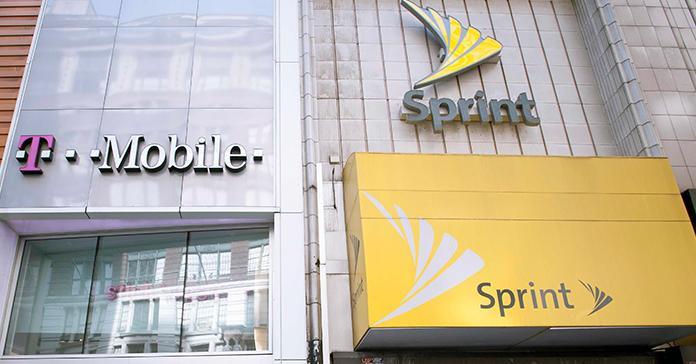New Report from EPI and Roosevelt Institute Finds Proposed Merger Would Reduce Wages By Between $520-$3,276 Annually.
Washington, DC — A new report released today by the Economic Policy Institute (EPI) and the Roosevelt Institute, titled “ Labor market impact of the proposed Sprint–T-Mobile merger,” finds that reducing the number of wireless carriers from four to three would lessen competition and reduce retail wireless workers’ wages. As authors Adil Abdela of Roosevelt Institute and Marshall Steinbaum of EPI assess:
“[I]n the 50 most affected labor markets, we predict that weekly earnings will decline by $63 on average (across markets) using the specification with the largest magnitude, and $10 on average using the smallest-magnitude specification. These weekly earnings declines correspond to annual earnings declines of as high as $3,276 (or $520 under the smallest-magnitude specification).”
Reporting on the new research, Mark Davis of the Kansas City Star highlights that the reduction in wages would affect even wireless workers not employed by two companies involved in the proposed transaction:
“A merger between Sprint and T-Mobile would cut into the wages of wireless store employees — including those working at Verizon, AT&T and all four companies’ authorized dealer stores, according to a study released Monday. Average weekly earnings for these retail workers “would decline by as much as 7 percent” and between 1 percent and 3 percent “in the bulk” of the markets affected by the merger.”
While union membership and collective bargaining can help mitigate the effect of employer concentration, T-Mobile and Sprint have long histories of interfering with workers’ right to organize and sending jobs overseas.
A panel discussion event held today at EPI to release the new paper included remarks from T-Mobile United/CWA Activist Vanessa Villalta, a retail sales representative at a T-Mobile store in Houston. Villalta’s remarks included personal reflections on how retail wireless workers frequently transition to new jobs within the industry and the fears of many workers in the industry about whether the proposed merger would eliminate their jobs:
“I have listened to the economists discuss the ways in which the merger of T-Mobile and Sprint will increase the ability of the merged T-Mobile to depress wages of workers at the new company.
As a frontline T-Mobile worker, this makes common sense to me. I can tell you from experience, that retail wireless workers frequently move from one wireless company to another. If we have a bad manager, or sales quotas become unreasonable, or they reduce our commissions, – we’ll often quit work at one wireless store and look for work at another wireless company’s store. In my own store, there’s one sales rep who came from AT&T and another who came from Verizon. There’s so much turnover in our stores, that this is quite common.
...my co-workers are very worried about our jobs after the merger. We saw a video of T-Mobile CEO John Legere telling Senators in a congressional hearing that after the merger he would “rationalize” the number of stores, cutting jobs. That only makes sense. You can see from the maps that Sprint and T-Mobile stores, and those of the prepaid brands Metro and Boost, are quite close to each other – often on the same street corner. After the merger, the new T-Mobile will close redundant stores, and guess what, I fear that me and many of my co-workers will be redundant as well. That means we’ll be out on the street looking for jobs. CWA’s research finds that 30,000 of us are likely to lose our jobs after the merger....this merger should be blocked unless T-Mobile commits to regulators that it will not lay-off employees as a result of the merger and will agree to respect our legal right to have a union on the job.”
Read the new EPI and Roosevelt report “Labor market impact of the proposed Sprint–T-Mobile merger”
Press Contact
Beth Allen | Amy Fetherolf [email protected] 202-434-1168 |

